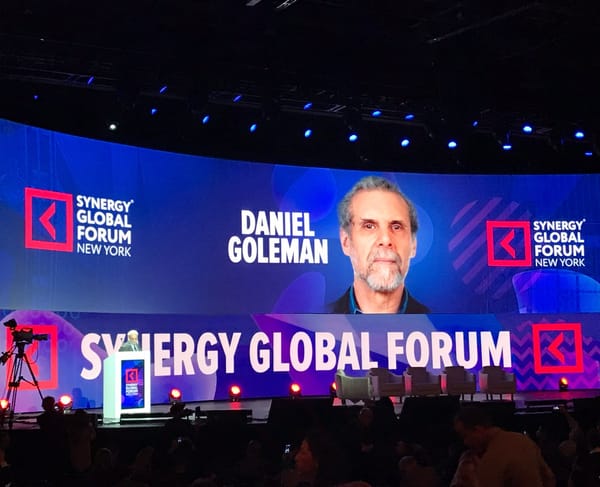Looking for the Soul in Artificial Intelligence
Originally posted on October 31, 2017.
Dear reader, before starting we need to make a deal. You, as the reader, must be committed not to be frustrated or disappointed after reading this article.
As the writer, I’m committed to leaving at least some open questions to you, as well as some insights.
Let’s be clear; it is not because I don’t want to give you the answers, it’s just because I have no idea what they are. Probably because the answers are still not clear for anybody.
The world has been collecting data continuously over the last decades. Today, anyone with a smartphone in their hands has access to more information than even the POTUS had fifteen years ago. Yes, only fifteen years ago. People create new content over and over, every single minute, at every single point of the globe.
AI is a tool, maybe the most powerful tool that we have had since electrical power was invented two centuries ago. This tool helps to process terabytes and terabytes of information in order to return significant insights which are useful for somebody.
Let me give you some examples of where we can see AI and how we use it today. One of the most common uses of AI today is in recommendations. Netflix recommends us movies and series to watch based on our previous viewing, our current location and other intrinsic data that they are able to obtain. Spotify recommends playlists, singers, and songs. Amazon tells us which book we should read next and what products we might need according to our previous purchases. One of my favorite recommendations comes from Gmail. They suggest multiple possible answers to the email that we are reading and all of them are surprisingly accurate. Sometimes they’re even better than any answer I could write.
Even though it might seem like black magic, the results of these recommendations come from several sources and inputs. If you are asking how Google, Amazon, Spotify, and Netflix can get all of this data, I would ask you if you had read those terms and conditions when you signed up.
Beginning a couple of years ago, Netflix has been creating their own content, House of Cards for example. They didn’t create House Of Cards like a filmmaking company would create their movies. Netflix has much more information about what the customer watches, what the customer does not watch, what the customer tends to chose based on years and years of providing service. The thing is, when you are watching a movie on Netflix, Netflix is giving you the content, but, in return, you are giving Netflix a lot of information to generate new content that you are going to watch in the future.
Following the same reasoning, if Netflix produces movies and series, why can’t Spotify do the same? If today Spotify recommends new songs to listen with such accuracy, in the future Spotify will be able to create music just for us; music that we will love because they know what we love, and they know what we can’t stand.
In the same way that today we receive such careful recommendations — even dating apps tell us who could be a good match for us! — , some people ask if the time will come when humanity asks AI to decide for them.
I know that for some of you this could sound amazing and for others, it sounds scary. What I can say is that both of you are right.
Additionally, IBM is working to apply AI in the healthcare field. It’s a fact that we have many sources of information which medicine will be able to anticipate and prevent disease in patients. AI is a potent tool for medicine and healthcare. Family health history, previous medications taken, sport tracking reports, blood pressure, heart rate, surgeries and so on are valuable input sources to detect possible future health problems. Instead of people going to the doctor, the doctor will reach out to the patient when an alert is triggered because their heartbeat is not healthy. But AI will not replace doctors, AI will help doctors to write better prescriptions and save lives. This should be the approach which companies, organizations, and governments will have to take in the coming years.
Technology advances at a different rhythm than societies do in one key way: technology is faster. It’s a real challenge how societies will be prepared to accept AI. What will happen when moral dilemmas need to be resolved for a system? What will be the responsibility of AI?
Recent research has shown that people still prefer human support over machine support. When people reach out to a call center, they much prefer to speak to a human, and when they are asked whether they prefer a human driver or a self-driven car, they overwhelmingly choose a human driver.
We have more questions than answers when it comes to AI, but we are only at the beginning. What do you remember about the Internet at the beginning of the 90s? If you were born, probably not too much. To put it in context, AI today is as the Internet was in 1993.
AI will never replace humanity. AI will help humanity improve.
One thing is clear: we are running into the AI era and I’m happy to be part of this. My invitation to you, as the reader, is to be part of it, to embrace the change. Let’s make the world a better place to live for our children, for our grandparents and the children of our children.

